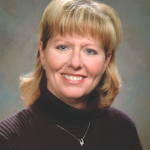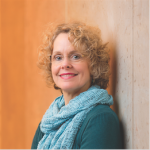
I was born in Shanghai, China. My mother was a judge. When I was born, my parents named me Ping, which means “justice” and “fairness” in Chinese. My parents were busy, so I was brought up mainly by my paternal grandma, whom I consider the most important role model in my life. She was the ultimate embodiment of grace, courage, decency, generosity, and beauty, and taught me a lot of good values and helped develop my high self-esteem.
I believed at a very young age that I came to this world for a purpose. The world fascinated me, and I knew my future would have something to do with this world, even though I had no idea how big it was. Like the rest of the Great Cultural Revolution generation during the Mao era, I was sent down to the countryside after high school to get my “bourgeois outlook” changed by the peasants. At night I taught myself English inside the tent of my little bunk bed, using a flashlight. Three years later the political regime and landscape changed. Under the reformer Deng Xiaoping, China opened her doors for the first time to the West and colleges started to enroll students. I passed the rigorous college entrance exams, and chose English as my major.
During the late 1980s, I took a career detour and ending up joining the very first foreign-owned and -operated hotel in China – the Shanghai Hilton International, where I worked as a training manager and PR liaison. In 1989, I got a graduate assistantship from the Western Illinois University and was lucky enough to get out of China right after the student movement in Tiananmen Square. In early fall 1989, I came to the States to pursue my master’s degree with two suitcases, a humble heart, and a strong will. And along my journey, at every critical moment, someone was there to inspire, support, and guide me.
I was hired by Conferon (now Experient) through a headhunter in 1993. Over the last 19 years ownership has changed several times and so has the brand, but I stayed. People call me a “lifer,” and in my case there are good reasons. In 1999, my mother was diagnosed with bone cancer. Bruce Harris, president and CEO of Conferon, bought a ticket and sent me back to Shanghai to be with my dying mother until her very last moment. The other reason is, I have good faith in the company I work for. I know what I want to do and where my passion is. It makes no sense to change a job while I am in for a career.
Someone once said, “Success is when preparation meets opportunity.” In my case it’s true. In 2003 I began to learn global business strategy and management from a personal mentor who worked in another industry. His C-level vision and understanding of global business on a cellular level made a profound impact on me and made me what I am as a professional businesswoman. I started to think about what my company’s global business could look like, and drafted a global business plan. At that time, “going global” sounded very much like a cliché and was viewed by many as a luxury. My plan did not then go very far due to many hurdles and competing priorities. But I didn’t give up, because what I believe in personally is equally important for the future growth of the company and the company’s leadership position in the industry.
In 2006, I got support from Conferon for my global initiative and started to travel to the Far East to check markets out. When Conferon was rebranded to Experient, I became director of international market development, working in Europe, Asia-Pacific, and emerging markets such as Eastern Europe.
The more I traveled, the more I could see the world becoming more and more “flat” due to technology. Technology has been helping to crush the political, economical, and financial barriers that keep us from doing business globally. That year I converted my personal vision into the company’s global service strategy – the “glocal” strategy. A global strategy combined with local culture is the essence of glocalization. No matter where our clients go, our account management team works directly with our clients, and we engage a local partner for operations management. This allows us to service our clients anywhere in the world.
I think the turning point for me was a 2008 Beijing Summer Olympics experience where we put our glocal strategy to the test. A Fortune 200 client of ours came to me wanting ideas, and since China is their largest growth market, I suggested an event held in conjunction with the Summer Olympics. We partnered with a local company with close ties with the Chinese government for operations management, and together we delivered what many insiders considered unthinkable, thanks to strong support from top-level Chinese government [officials]. It not only proved glocal strategy worked, but solidified my position as a global expert within Experient.
Then, in fall 2008, the global financial meltdown fundamentally changed the way we do business. In the corporate world, meetings began to be commoditized and procurement got involved, and associations were looking for ways to survive. Going global became an absolute necessity, not a luxury. People have started to realize that [for] organizations to be sustainable in today’s turbulent and volatile economy, [they] need to go global or they will be globalized. It’s as simple as that. Globalization at its ultimate level is when customer service is supported on a local level. American companies can not go to big emerging markets such as Brazil, Russia, India, China, and South Africa to tell them: “This is our American way, so it’s the only way.”
In fall 2009, due to the increasing demand from our existing clients, our Global Sourcing Division was established. Many people have played an important role in helping get me to where I am today. I was especially grateful for two confidants and friends. My boss, Jerry Murphy, is a great example of new-generation leadership. He is innovative, open-minded, nimble, daring, and technologically savvy. Equally important is my trusted global adviser, David Spain, managing partner from The Partnership, who is a wealth of global destination and business knowledge. David is instrumental in connecting me to the right players around the world.

